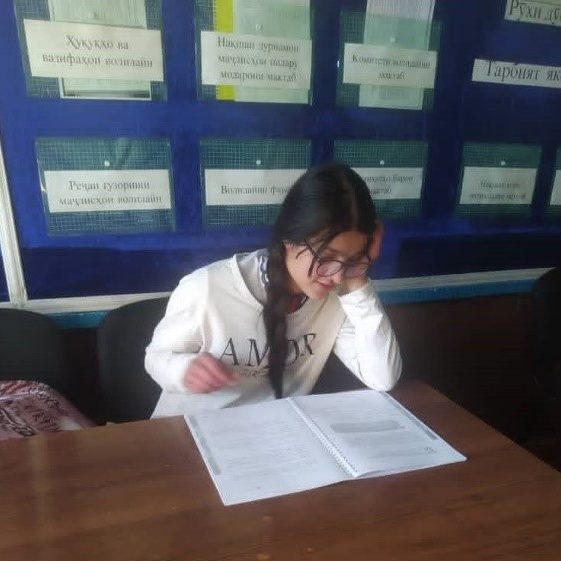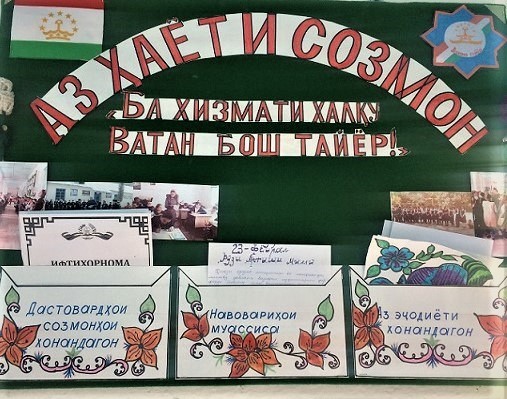Nestled in the Pamir Mountains, Murghab district is on the eastern side of Gorno-Badakhshan Autonomous Oblast (GBAO) in Tajikistan. Murghab is one of the poorest and most remote regions of GBAO, but this has not discouraged local high school students from dreaming about a brighter future. On the contrary, the students are building skills to help improve their community.
17-year-old Khursheda is one of these students. Khursheda recognizes that children in her region, particularly ones from the most vulnerable families, face many challenges accessing education and learning opportunities. In her own school, she has noticed that some of the students can’t afford basic stationery and supplies.

“In the future, once I graduate university, I will work, earn money, and come back here to build a school for schoolchildren from vulnerable families who cannot afford access to reliable education."
— Khursheda
Khursheda and her classmates recently came together as a student council to start talking about their future plans: who they are, who they want to be, their purpose, their dreams, and their sense of control over their own lives. Because Khursheda is one of the most active students at the school, she was nominated by her fellow students to be the head of the student council.
Preparing Leaders in Tajikistan
At Khursheda’s school, all 335 students are part of the student council. As part of the council, the students have helped develop an annual plan and organize events for the school. The council has conducted cultural and sports events, celebrated holidays, held competitions and games, led handicraft activities, and organized roundtable discussions. The council also has a finance team that raises funds to support both the school and students from vulnerable families.

Tajikistan’s Ministry of Education and Science (MoES) sees how student councils can help prepare the country’s future leaders. The MoES requires all schools to create student councils to give students a platform to initiate extracurricular activities and encourage learning in and out of school. The councils help to prepare students for their future professional aspirations by helping them to grow their confidence and build their knowledge while practicing making decisions and taking action.
The Thrive Tajikistan: Partnership for Socio-Economic Development program, a partnership between the Aga Khan Foundation (AKF) and the United States Agency for International Development (USAID), is working with the Branch Republican Institute for Professional Development in Education (IPD) to help strengthen and mentor 57 student councils across GBAO and Khatlon districts.
Through Thrive Tajikistan, the student councils are learning about leadership, documentation, work planning, and complying with national regulations. IPD mentors the student council leaders and offers trainings in areas including nutrition and community engagement. In 2019, Thrive Tajikistan also supplied the councils with equipment to help students carry out their council work, including stationery, laptops, printers, and resources for activities including research projects and school gardening.
“Since working with the student council, I have improved my management and organization skills,” Khursheda says. “The student council has also helped us to design and plan events. I have learned that, while conducting different events, we are able to figure out who in our school possesses what type of skills.”